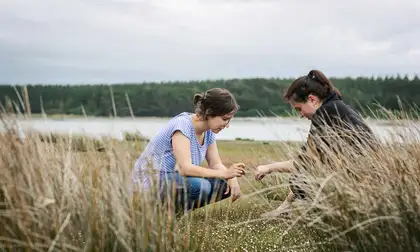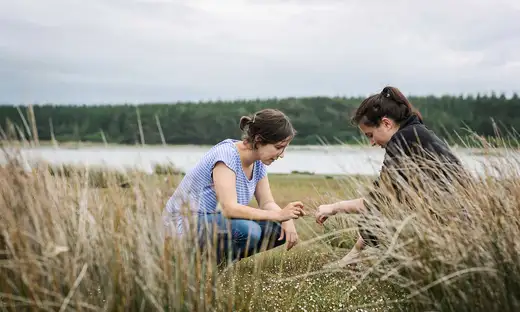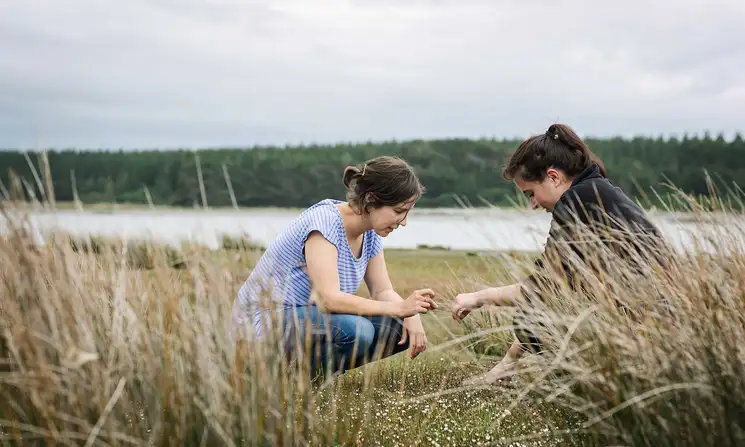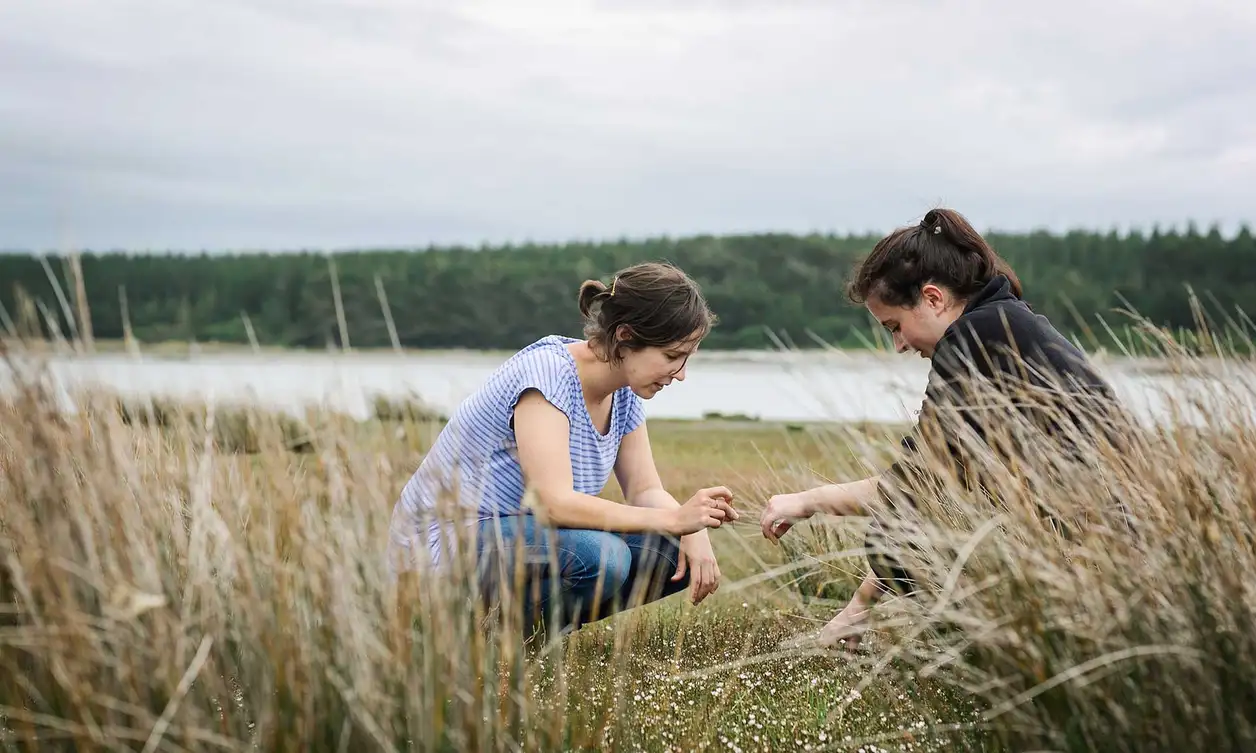It has become increasingly clear that the world of work before the Covid-19 pandemic broke was unsustainable. Two-thirds of humanity was working in informal jobs with no formal protections, no minimum wage, and no guaranteed pay, proper safety at work, or occupational health cover. Of the other third, nearly 60 per cent were reportedly not making ends meet, even though they might have been on a legal minimum wage. Globally and nationally, all of these issues disproportionately affect women, younger and older people, and (in New Zealand) Māori and Pasifika peoples in particular. Today, the International Labour Organization (ILO) is voicing what many people around the world know and feel: we cannot go back to the levels of in-work poverty and precariousness of 2019.
Rethinking how work can be made more sustainable for future generations
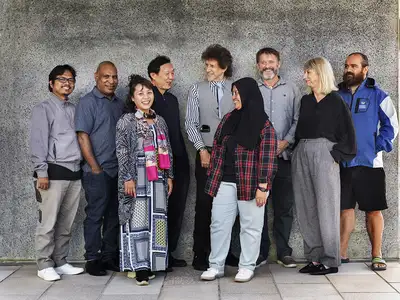
From left: Dr Jony Yulianto, Michael Esop and Dr Minh Hieu Nguyen, Professor James H. Liu and Professor Stuart C. Carr, Nuke Martiarini, Professor Darrin Hodgetts, Dr Veronica Hopner and Dr Pita King.
To provide a focus on making work more sustainable and fair, Massey and UNESCO have established a new Chair in Sustainable Livelihoods. Professor Stuart C. Carr from the School of Psychology and EPIC (End Poverty and Inequality Cluster) has been appointed to the position for a term of four years. Resonant with the 17 United Nations Sustainable Development Goals (SDGs) to eradicate poverty and inequality, Sustainable Livelihoods centre on living with dignity, participation in society and engagement with the political system. ‘Sustainable livelihoods is about rethinking how work can be made more sustainable for future generations, and how all of us are interconnected,’ says Professor Carr. ‘If we buy something at a low price, the chances are that somebody has suffered inhumane work conditions to produce that. Yet you can have decent work conditions and economic development. Nobody should be treated in a poor way just to extract profits; we can have shared prosperity, and there are much smarter and more humane ways for economies to genuinely develop. Policies like living wages are increasingly important, and, as automation advances apace, so are transfers such as universal basic income. People want not precarious jobs, but sustainable livelihoods.’
One area that the Chair will focus on is the living wage. This concept often gets confused with higher minimum wage rates, which are based on calculations of the subsistence cost of living for a hypothetical household unit. But the broader concept goes much further. ‘It implies that not just cost of living, but also quality of living, will follow from safely meeting everyday material needs,’ explains Professor Carr. The Chair will work with the ongoing Project GLOW (Global Living Organisational Wage), which began at Massey in partnership with colleagues at Cape Town University and Tshwane University of Technology in Pretoria and has now grown to a network of over 28 countries all working in and around living wage issues. The work includes living wage research, service and teaching, for example in the production and consumption of basic commodities from which millions of people may make a more sustainable living.
‘GLOW looks at supply chains and how the living wage is fair-trade operated along those,’ says Professor Carr. ‘We’ve been doing some really interesting work with early career scholars through that network on the coffee industry. New Zealanders love coffee, but we don’t grow it, so we bring it in from other places. Who are the people working along the supply chain? The GLOW network has partners along it and we work with them, for example in Vietnam, which is the second-biggest producer of coffee now. They’re very interested in working with us around what difference a fair-trade living wage can make to coffee production and consumption around the world, in countries like New Zealand, but through trade connections with countries like Vietnam.’
The GLOW network is also involved in projects closer to home. In late 2020 Hamilton City Council adopted the living wage for all its workers, which gave staff and contractors on the minimum wage a $2.10 increase in their hourly rate. The GLOW network was part of a consultation process for this decision, with research that was conducted in New Zealand, funded by the Marsden Fund (and later extended by the Health Research Council) and co-presented at the Hamilton City Council Chambers as part of the consultation, alongside presentations from NGOs, campaign groups and other city councillors. ‘I think we are in a great unfreezing moment where things are changing,’ says Professor Carr. ‘People are saying we cannot go back to that unsustainable world, we have to go forward. Decent work is part of that equation.’
Importantly, the Chair in Sustainable Livelihoods will also involve cooperation with other UNESCO chairs, enabling other projects from a range of areas to begin, or advance at a faster pace. ‘The badge of UNESCO attracts people’s attention; it acts like a bridge for connecting people. EPIC thinks the Chair will be a force multiplier for a lot of other projects that are already ongoing and it will help seed new ones. The UNESCO Chair is about thinking outside the square, but I’m just the facilitator. It is an exercise in partnership.’ Eradicating poverty is the primary SDG, and doing so by working together is how it can be achieved.
Stuart Carr
Learn more about the researcher and Chair of UNESCO Sustainable Livelihoods.
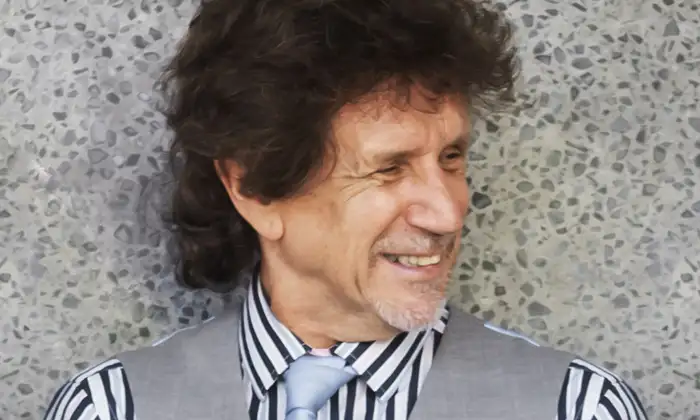
Professor Stuart Carr
Stuart Carr is part of the research unit EPIC, or End Poverty and Inequality Cluster. Stuart co-founded the EPIC projects GLOW (Global Living Organizational Wage) and SAFE (Security Assessment for Everyone), guided by UN Sustainable Development Goals for decent work and peace in society.





